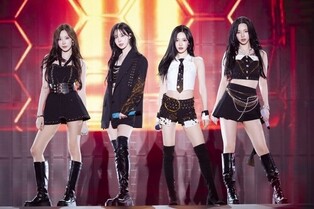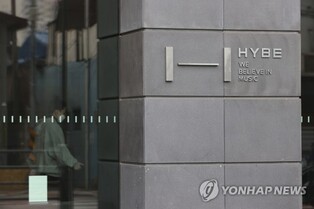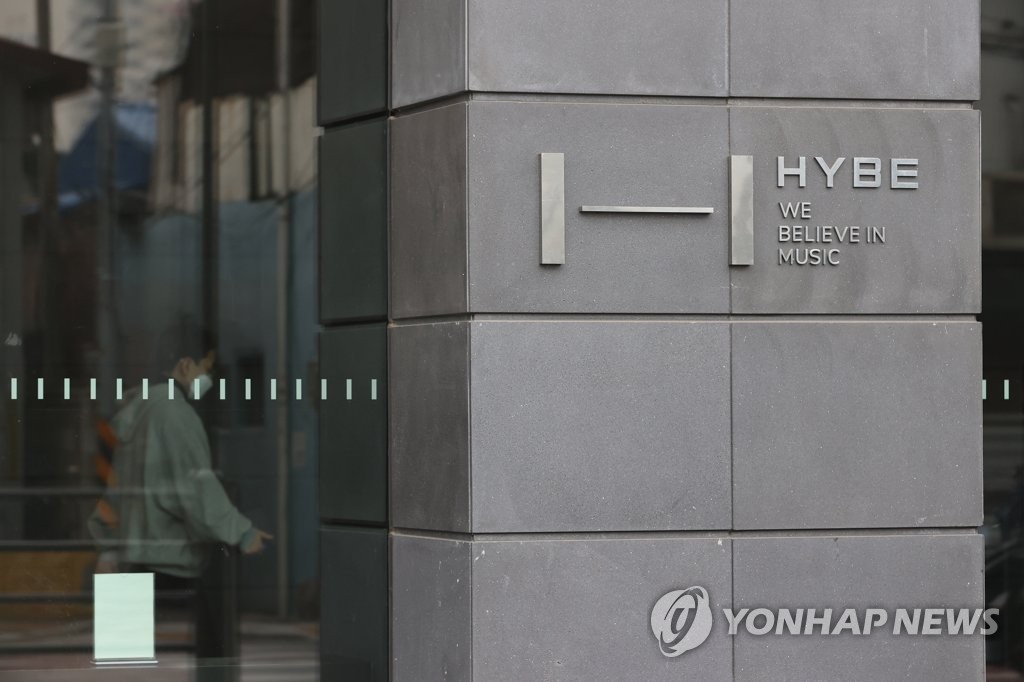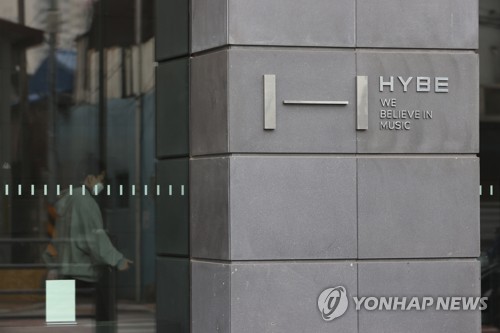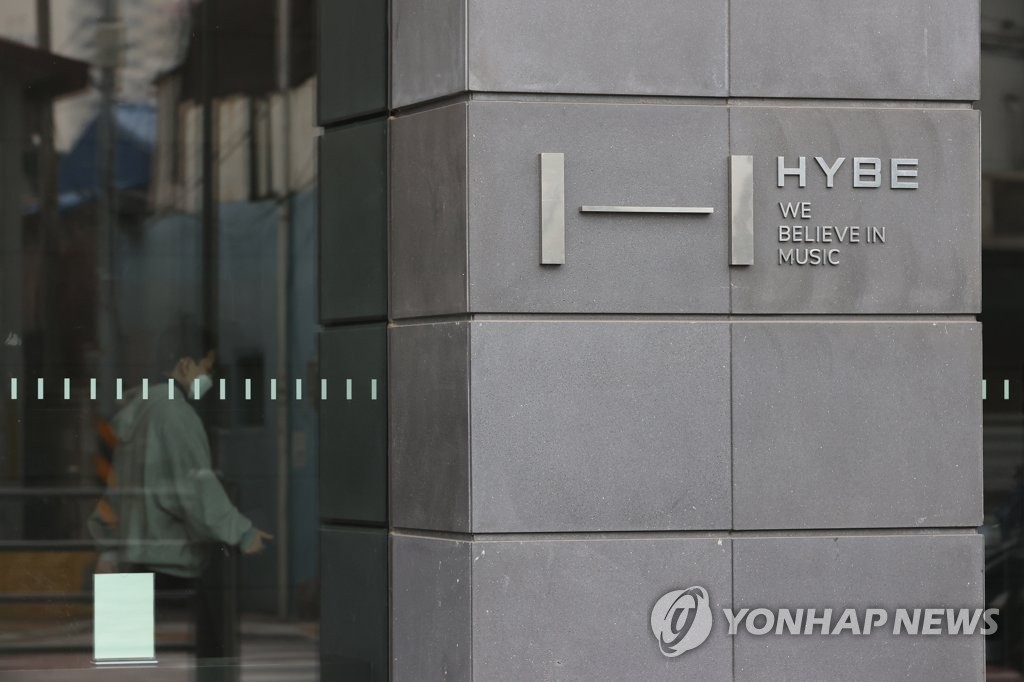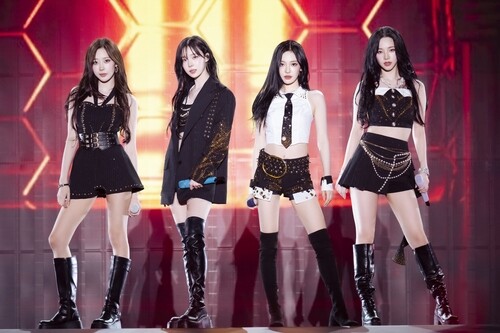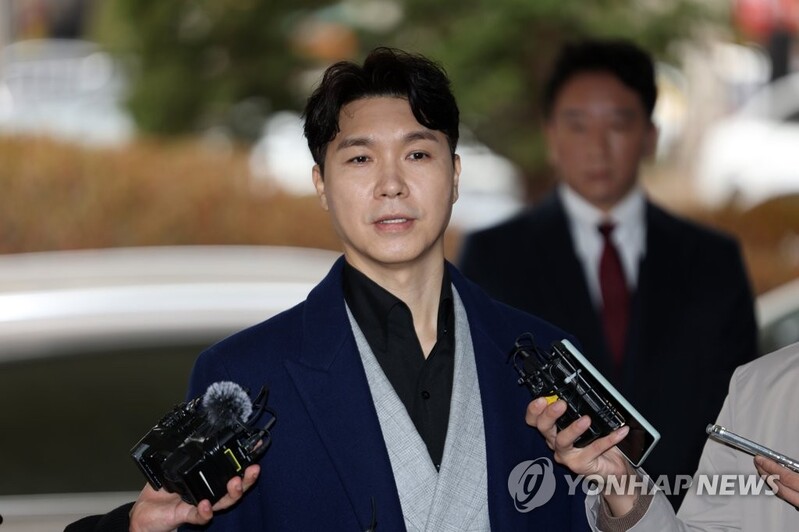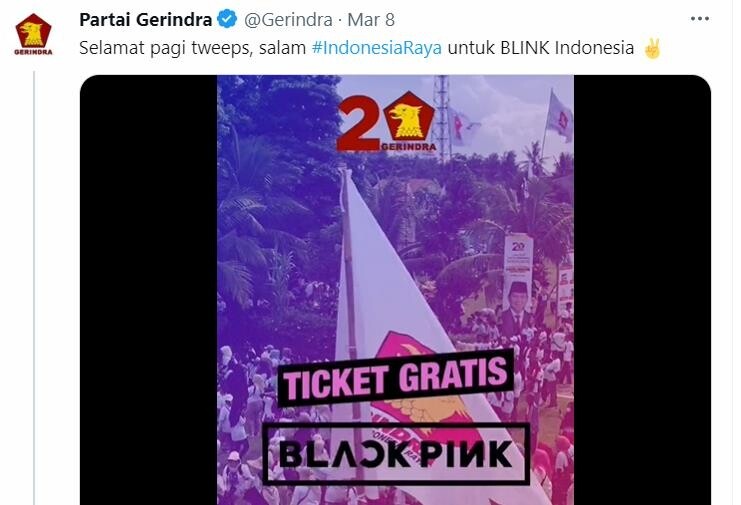 |
| ▲ This photo, captured from Gerindra Party Twitter, shows post of Indonesian Gerindra Party Twitter, which offers BLACKPINK concert tickets as prizes by Indonesian political party promotional prizes. (PHOTO NOT FOR SALE) (Yonhap) |
SEOUL, Mar. 21 (Yonhap) -- As K-pop became very popular in Indonesia, some political parties have used it as a propaganda tool to attract young voters ahead of next year's general elections.
According to the Jakarta Post on the 21st (local time), the opposition Gerindra Party announced on its Twitter account that it will present tickets to the BLACKPINK World Tour "BORN PINK" performance in Jakarta through a lottery.
The tweet said that if you want to apply for the lottery, you should take a picture of yourself posing in front of a billboard with the face of party's presidential candidate Prabowo Subianto wearing BLACKPINK goods and post it on social media and tag Gerindra and Prabowo.
The video that guides this has received more than 1 million views since its publication on the 8th.
Another political party, the Indonesian Solidarity Party (PSI), also announced that it will provide BLACKPINK concert tickets as prizes through a lottery to those who follow the party's official Twitter account and retweet posts that guide the prizes.
The National Mandate Party (PAN) also invited K-pop group Astro to perform at its own party event last year.
Zita Anjani, a member of the PAN central executive board who organized the performance at the time, said, "It's time for the party to listen to the voices of real young people, not just chanting, to attract support from young voters ahead of the 2024 general election."
The reason why political parties use K-pop to promote political parties is that the proportion of young voters in Indonesia is large.
Indonesia is set to hold large-scale elections in February next year to select new presidents, lawmakers, and local council members. According to the think tank the Centre for Strategic and International Studies (CSIS), the so-called millennials born after 1980 and Gen-Z born after the mid-1990s are expected to account for 60% of all voters.
Young people's reaction to political parties' use of K-pop as a propaganda tool is mixed.
There were also many comments criticizing the event, including a reply to the Gerindra Party's post, which offered tickets to BLACKPINK's performance as a prize, saying, "Please don't involve BLACKPINK's name in political interests."
"I don't agree with political parties trying to implant the image of K-pop in politics," University student Ines Sela Melia (22) told the Jakarta Post. "We should deal with more serious real problems such as public education and corruption than giving away free tickets."
On the other hand, makeup artist Putri Fahira Budiman, 23, said it seems urgent for political parties to make such efforts to win support from young people, adding, "I think it's one of the parties' efforts to secure public support."
(This article is translated from Korean to English by Yunhee Cho.)
(END)
(C) Yonhap News Agency. All Rights Reserved







